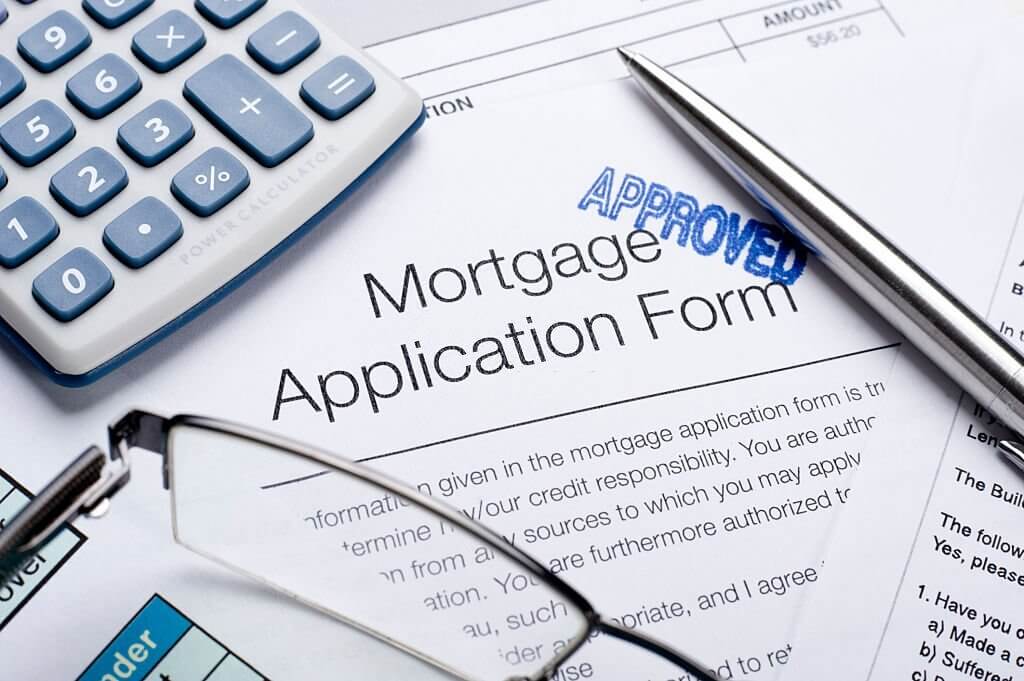How to Lock in a Favorable Mortgage Rate

Securing a favorable mortgage rate is crucial when purchasing a home or refinancing an existing loan. With the potential to save thousands of dollars over the life of your mortgage, understanding how to lock in a favorable rate is essential. In this article, we will explore key strategies and considerations that can help you secure an attractive mortgage rate. From improving your credit score to shopping around for lenders, we will provide you with actionable tips to ensure you obtain the best possible rate for your home financing needs.
Understand the Factors Influencing Mortgage Rates

When applying for a mortgage, it’s essential to understand the factors that influence mortgage rates. These rates can fluctuate based on several key elements that impact the overall cost of borrowing. Economic factors play a significant role in determining mortgage rates. Indicators such as inflation, GDP growth, and employment rates can influence the direction of interest rates. Additionally, the monetary policy set by the central bank, like the Federal Reserve, has a direct impact on mortgage rates. Changes in the federal funds rate can lead to adjustments in borrowing costs.
The housing market conditions are another crucial factor affecting mortgage rates. Supply and demand dynamics, along with the overall health of the real estate market, can influence the rates lenders offer. When demand for homes is high, mortgage rates may increase due to increased competition among borrowers.
Creditworthiness is also a significant factor considered by lenders when determining mortgage rates. Borrowers with higher credit scores and lower levels of debt are typically offered more favorable rates. Lenders see these borrowers as less risky, which can lead to lower interest rates on their mortgages.
Lastly, the specific loan characteristics can affect mortgage rates. Factors such as the loan term, whether it’s a fixed-rate or adjustable-rate mortgage, and the loan-to-value ratio can impact the interest rate offered.
By understanding these key factors influencing mortgage rates, borrowers can make more informed decisions and potentially secure better rates. It’s important to stay updated on economic trends, monitor the housing market, maintain a good credit score, and carefully consider the loan options available. Working with a knowledgeable mortgage professional can also provide valuable guidance throughout the process of securing a mortgage with favorable rates.
Strengthen Your Credit Score
Your credit score plays a crucial role when it comes to securing favorable mortgage rates. Lenders use credit scores as a measure of your creditworthiness and your ability to manage debt responsibly. A strong credit score can potentially save you thousands of dollars over the life of your mortgage. Here are some effective strategies to strengthen your credit score
First, make sure to pay all your bills on time. Late payments can significantly impact your credit score, so it’s important to establish a pattern of consistent and timely payments. Set up automatic payments or reminders to avoid any missed payments.
Reducing your credit card balances is another vital step. High credit card balances can negatively affect your credit utilization ratio, which is the amount of available credit you’re using. Aim to keep your balances below 30% of your credit limit to demonstrate responsible credit management.
Avoid applying for new credit cards or loans before applying for a mortgage. Multiple credit inquiries within a short period can lower your credit score. Instead, focus on maintaining your current credit accounts and building a strong payment history.
Regularly reviewing your credit report is essential. Check for any errors or discrepancies and address them promptly. Disputing inaccuracies can help ensure that your credit score is based on accurate information.
Lastly, be patient. Building and improving your credit score takes time and consistent effort. By practicing good financial habits and responsibly managing your credit, you can gradually strengthen your credit score and increase your chances of securing better mortgage rates.
By taking proactive steps to strengthen your credit score, you demonstrate to lenders that you are a responsible borrower. This, in turn, can help you secure lower interest rates and save money on your mortgage. Remember that improving your credit score is a journey, but the benefits of securing a favorable mortgage rate make it well worth the effort.
Save for a Larger Down Payment

Saving for a larger down payment is a smart strategy when it comes to securing better mortgage rates. A larger down payment not only reduces the overall amount you need to borrow, but it also demonstrates financial stability to lenders. Here are some key points to consider when saving for a larger down payment:
Firstly, determine your target down payment amount. While conventional wisdom suggests a 20% down payment, it’s important to understand that there are various loan programs available with different down payment requirements. Research the options that best suit your financial situation and homeownership goals.
Create a budget and identify areas where you can cut back on expenses. Consider reducing discretionary spending, finding more affordable housing options, or saving a portion of any windfalls or bonuses you receive.
Open a dedicated savings account for your down payment funds. Separating your savings from everyday spending can help you avoid temptation and track your progress more effectively.
Automate your savings by setting up regular transfers from your checking account to your down payment savings account. Treat your down payment savings as a non-negotiable monthly expense.
Consider alternative sources of funds, such as tax refunds, gifts from family, or proceeds from the sale of assets, to supplement your savings.
It’s important to note that saving for a larger down payment may require time and discipline. However, the benefits can be substantial. With a larger down payment, you can potentially secure a lower interest rate, avoid private mortgage insurance (PMI), and have lower monthly mortgage payments.
By diligently saving and building a larger down payment, you not only increase your chances of qualifying for a mortgage but also position yourself for more favorable mortgage rates. Take advantage of the resources and tools available to help you achieve your down payment savings goal and set yourself up for long-term financial success in homeownership.
Reduce Your Debt-to-Income Ratio

Reducing your debt-to-income ratio is a crucial step to improve your chances of securing better mortgage rates. Lenders consider this ratio to assess your ability to handle additional debt responsibly. Here are some effective strategies to lower your debt-to-income ratio:
First, focus on paying down existing debts. Start by tackling high-interest debts, such as credit cards, personal loans, or auto loans. By reducing these balances, you not only decrease your debt but also improve your creditworthiness.
Consider consolidating your debts into a single loan with a lower interest rate. This can help streamline your payments and potentially reduce your monthly obligations.
Avoid taking on new debts during the mortgage application process. Taking on additional loans or credit cards can increase your debt-to-income ratio and negatively impact your mortgage rates.
Increase your income by exploring opportunities for career advancement or taking on a side job. The extra income can help you pay off debts faster and improve your debt-to-income ratio.
Another effective approach is to negotiate with creditors for lower interest rates or more favorable repayment terms. This can help reduce the overall cost of your debts and accelerate your journey toward a healthier debt-to-income ratio.
In summary, reducing your debt-to-income ratio is a critical step in improving your chances of securing better mortgage rates. By paying down existing debts, avoiding new debts, increasing your income, and negotiating with creditors, you can achieve a healthier financial profile and demonstrate to lenders that you are a responsible borrower. Taking control of your debt and managing it wisely will not only benefit you during the mortgage application process but also contribute to your overall financial well-being.
Shop Around for Lenders
When it comes to securing the best mortgage rates, it’s crucial to shop around and compare offers from different lenders. Mortgage rates can vary significantly from one lender to another, and finding the most favorable rate can save you a substantial amount of money over the life of your loan. Here are some key points to consider when shopping for lenders:
Start by researching and gathering information from multiple lenders. This can include traditional banks, credit unions, mortgage brokers, and online lenders. Each type of lender may have different rates and terms available, so casting a wide net is important.
Request loan estimates from several lenders. This document will provide you with detailed information about the loan terms, closing costs, and estimated monthly payments. Comparing these estimates will help you identify the most competitive offers.
Consider both interest rates and closing costs when evaluating lender offers. A slightly lower interest rate may seem appealing, but high closing costs can offset the savings. Look for a balance between a competitive interest rate and reasonable closing costs.
Don’t be afraid to negotiate with lenders. Once you have multiple offers in hand, use them as leverage to negotiate better terms. Lenders may be willing to match or beat competitor rates to earn your business.
Take into account the reputation and customer service of the lenders you are considering. Read reviews, check their credentials, and ensure they have a track record of providing excellent service to borrowers.
Shopping around for lenders can be time-consuming, but the potential savings make it worthwhile. By comparing offers and negotiating with lenders, you increase your chances of finding the best mortgage rates available. Remember that the interest rate you secure can significantly impact your monthly payments and overall financial well-being. So take the time to explore your options, ask questions, and make an informed decision.
Consider Different Loan Programs

When searching for competitive mortgage rates, it’s essential to consider different loan programs available to borrowers. Each loan program has its unique features, eligibility criteria, and interest rate structures. Here are some loan programs to consider:
- Conventional Loans: Conventional loans are not insured or guaranteed by the government. They typically require a higher credit score and a larger down payment but often offer competitive interest rates.
- FHA Loans: Backed by the Federal Housing Administration, FHA loans are popular among first-time homebuyers. They have more lenient credit requirements and allow a lower down payment. However, FHA loans usually come with mortgage insurance premiums.
- VA Loans: Available to eligible veterans, active-duty service members, and their spouses, VA loans are guaranteed by the Department of Veterans Affairs. They often offer favorable terms, including no down payment requirements and competitive interest rates.
- USDA Loans: USDA loans are designed for low-to-moderate-income borrowers in rural areas. These loans offer low-interest rates and no down payment requirements, making homeownership more accessible in eligible rural locations.
- Jumbo Loans: Jumbo loans are for borrowers seeking higher loan amounts that exceed the conforming loan limits set by Fannie Mae and Freddie Mac. These loans typically have slightly higher interest rates but offer flexibility for those needing larger loan amounts.
By exploring these loan programs and understanding their requirements, you can select the one that aligns with your financial goals and maximizes your chances of securing competitive mortgage rates. Remember to compare interest rates, loan terms, and any additional fees or requirements associated with each program.
Consulting with a reputable mortgage lender or loan officer can help you navigate the different loan programs and choose the one that best suits your needs. They can provide personalized advice and guide you through the application process. Making an informed decision about the loan program can help you secure the most favorable mortgage rates and ensure a successful homebuying journey.
Timing is Key

When it comes to securing a mortgage, timing can make a significant difference in the interest rates you obtain. Mortgage rates are influenced by various economic factors, and understanding the role of timing can help you secure the most favorable rates. Consider the following points:
- Economic Conditions: Mortgage rates are tied to the broader economy. During periods of economic growth, rates may rise as demand for loans increases. Conversely, during economic downturns, rates tend to decrease as a response to stimulate borrowing and stimulate the housing market.
- Market Trends: Keep an eye on market trends and forecasts. Monitor the news and consult with financial experts to stay informed about the direction of mortgage rates. This can help you determine whether it’s an opportune time to apply for a mortgage or if waiting for rates to potentially decrease would be more advantageous.
- Federal Reserve Actions: The Federal Reserve plays a crucial role in shaping interest rates. When the Federal Reserve increases or decreases the federal funds rate, it can have a cascading effect on mortgage rates. Stay informed about the Federal Reserve’s decisions and announcements to gauge the potential impact on mortgage rates.
- Locking in Rates: Once you find a favorable rate, consider locking it in with your lender. Mortgage rate locks provide protection against potential rate increases during the loan processing period, typically for a specified timeframe.
Remember that predicting future mortgage rates with complete accuracy is challenging. However, by staying informed about economic conditions, market trends, and the actions of the Federal Reserve, you can make more informed decisions about when to secure a mortgage. Timing your mortgage application strategically can help you take advantage of lower rates and potentially save thousands of dollars over the life of your loan.
Work with a Mortgage Professional

When it comes to navigating the complex world of mortgage rates, working with a knowledgeable mortgage professional can be invaluable. These professionals specialize in the mortgage industry and can provide guidance and expertise throughout the homebuying process. Here’s why collaborating with a mortgage professional can help you secure competitive mortgage rates:
- Expert Advice: Mortgage professionals stay up-to-date with the latest market trends, lender offerings, and mortgage rate fluctuations. They have a deep understanding of the factors that influence mortgage rates and can provide valuable insights tailored to your unique financial situation.
- Access to Multiple Lenders: Mortgage professionals have access to a network of lenders, including banks, credit unions, and mortgage companies. This broad range of options allows them to compare rates and negotiate on your behalf to find the most competitive mortgage rates available.
- Customized Mortgage Solutions: Every borrower has different financial circumstances and goals. A mortgage professional can assess your specific needs and recommend mortgage products that align with your requirements. They can help you explore various loan options, such as fixed-rate mortgages, adjustable-rate mortgages, or government-backed loans, and explain how each option impacts your mortgage rates.
- Streamlined Application Process: Applying for a mortgage can be complex and time-consuming. A mortgage professional can guide you through the paperwork, documentation, and application process, ensuring everything is submitted accurately and on time. This efficient process can help you secure mortgage rates without unnecessary delays.
- Ongoing Support: Even after securing a mortgage, a mortgage professional can continue to provide support and advice. They can help you understand the implications of rate changes, refinance options, and strategies for paying off your mortgage faster, ultimately saving you money in the long run.
Collaborating with a mortgage professional is an investment in your financial future. Their expertise, access to lenders, and personalized guidance can increase your chances of obtaining the most competitive mortgage rates available. By working with a trusted mortgage professional, you can navigate the mortgage landscape with confidence and make informed decisions that align with your homeownership goals.
Securing a favorable mortgage rate requires careful consideration and proactive measures. By understanding the factors influencing rates, improving your credit score, saving for a larger down payment, and reducing your debt-to-income ratio, you can position yourself for a better rate. Shopping around for lenders, considering different loan programs, and timing your rate lock are additional strategies to maximize your chances of obtaining a favorable mortgage rate. Working with a trusted mortgage professional can provide valuable guidance throughout the process.
Remember, locking in a favorable mortgage rate is not solely based on one factor. It requires a comprehensive approach, taking into account your financial situation, market conditions, and lender options. By being proactive and implementing these strategies, you can increase your chances of securing a mortgage rate that aligns with your goals and saves you money over the long term.
In conclusion, locking in a favorable mortgage rate is a crucial step in the homebuying or refinancing process. It can have a significant impact on your monthly payments and overall financial well-being. By understanding the factors influencing rates, strengthening your credit score, saving for a larger down payment, reducing your debt-to-income ratio, shopping around for lenders, considering different loan programs, and timing your rate lock, you can position yourself for success. Remember to seek guidance from a trusted mortgage professional who can assist you in navigating the complexities of the mortgage market. With careful planning and informed decision-making, you can secure a mortgage rate that sets you on the path to homeownership or financial stability.


